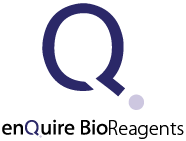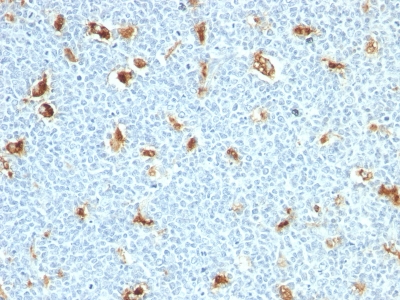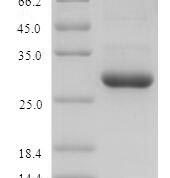Human Anti-S100A9 Antibody Product Attributes
Species: Human
Tested Applications: Flow Cytometry, Immunofluorescence, Immunohistochemistry (IHC).
Application Notes: Flow Cytometry (0.5-1ug of antibody/million cells in 0.1ml), Immunofluorescence (0.5-1ug of antibody/ml), Immunohistochemistry (IHC) (Formalin-fixed. Not suitable for frozen tissues.) (0.5-1ug of antibody/ml for 30 minutes at RT)
Clonality: Monoclonal
Anti-S100A9 Antibody Clone: S100A9/1011
Clone S100A9/1011 Host and Isotype: Mouse IgM kappa
Anti-Human S100A9 Positive Control Sample: Liver or histiocytoma
Cellular Localization of Antibody Cytoplasmic, Extracellular (secreted), Cell Surface
Buffer and Stabilizer: 10mM PBS with 0.05% azide.
Antibody Concentration: 200ug/ml
Antibody Purification Method:Protein A/G Purified
Immunogen: Recombinant human S100A9 protein
Storage Conditions: Store at 2 to 8° C (refrigerate). Stable for 24 months when properly stored.
S100A9 Previously Observed Antibody Staining Patterns
Observed Subcellular, Organelle Specific Staining Data:
Anti-S100A9 antibody staining is expected to be primarily localized to the cell junctions and cytosol.Observed Antibody Staining Data By Tissue Type:
Variations in S100A9 antibody staining intensity in immunohistochemistry on tissue sections are present across different anatomical locations. An intense signal was observed in hematopoietic cells in the bone marrow, squamous epithelial cells in the cervix, uterine, esophagus and oral mucosa, epidermal cells in the skin, cells in the red pulp in spleen and squamous epithelial cells in the tonsil and vagina. More moderate antibody staining intensity was present in hematopoietic cells in the bone marrow, squamous epithelial cells in the cervix, uterine, esophagus and oral mucosa, epidermal cells in the skin, cells in the red pulp in spleen and squamous epithelial cells in the tonsil and vagina. Low, but measureable presence of S100A9 could be seen in cells in the white pulp in spleen. We were unable to detect S100A9 in other tissues. Disease states, inflammation, and other physiological changes can have a substantial impact on antibody staining patterns. These measurements were all taken in tissues deemed normal or from patients without known disease.Observed Antibody Staining Data By Tissue Disease Status:
Tissues from cancer patients, for instance, have their own distinct pattern of S100A9 expression as measured by anti-S100A9 antibody immunohistochemical staining. The average level of expression by tumor is summarized in the table below. The variability row represents patient to patient variability in IHC staining.| Sample Type | breast cancer | carcinoid | cervical cancer | colorectal cancer | endometrial cancer | glioma | head and neck cancer | liver cancer | lung cancer | lymphoma | melanoma | ovarian cancer | pancreatic cancer | prostate cancer | renal cancer | skin cancer | stomach cancer | testicular cancer | thyroid cancer | urothelial cancer |
|---|---|---|---|---|---|---|---|---|---|---|---|---|---|---|---|---|---|---|---|---|
| Signal Intensity | - | - | + | - | + | - | + | - | ++ | - | - | - | - | - | - | ++ | - | - | - | - |
| S100A9 Variability | ++ | + | ++ | + | ++ | + | ++ | ++ | ++ | ++ | + | ++ | ++ | ++ | + | ++ | + | + | + | ++ |
Limitations and Warranty
enQuire Bio's S100A9 Anti-Human Monoclonal is available for Research Use Only. This antibody is guaranteed to work for a period of two years when properly stored.

.jpg)




-178x178.jpg)

There are no reviews yet.